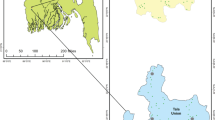Abstract
Change in climate scenario adversely affects water availability; food and energy security; biodiversity etc. which greatly impacts natural resources, health of every living being and their livelihood. Rural communities which are highly dependent on natural resources are significantly affected by climate change. For the rural communities, difficulty in coping with climate change and preparing for climate change risks are further aggravated due to geographic and demographic obstacles; limited economic diversity; higher poverty rates etc. Small farmers based on their traditional knowledge and experiences are implementing various practices in agriculture, water, livestock etc. sectors to adapt the challenges of climate change. These activities are insignificant in combating climate change issues. However, if these small scale activities are integrated with existing sectoral development schemes/programmes, can create a greater impact. This paper presents strategies on how farmer’s traditional knowledge and practices are integrated with sectoral development planning by showcasing case studies from various projects/activities in India. This paper provides comprehensive information on the traditional practices for managing natural resources, which would be helpful for policy makers, implementers and researchers to understand the mechanism and opportunities for convergence with the existing schemes/programmes.
Access this chapter
Tax calculation will be finalised at checkout
Purchases are for personal use only
Similar content being viewed by others
Notes
- 1.
Green manuring is the cultivation of a forage/leguminous crop having high nitrogen content during the monsoon which will later be used for wheat or other cash crops.
References
Intergovernmental Panel on Climate Change (2014). Climate Change 2014: Impacts, Adaptation and Vulnerability. Working Group II Contribution to the Fifth Assessment Report of the Intergovernmental Panel On Climate Change. World Meteorological Organization Press. Geneva, Switzerland. (http://ipcc-wg2.gov/AR5/images/uploads/WG2AR5_SPM_FINAL.pdf)
Second National Communication submitted to the United Nations Framework Convention on Climate Change (May, 2012). Ministry of Environment and Forests, Government of India. Environmental Information System Press. New Delhi, India. Pg-8 to 28. (http://envfor.nic.in/downloads/public-information/India%20Second%20National%20Communication%20to%20UNFCCC.pdf)
Climate Change and India: A 4X4 Assessment- A Sectoral and Regional Analysis for 2030s (November, 2010). Ministry of Environment and Forests, Government of India. Environmental Information System Press. New Delhi, India. Pg-73 to 75. (www.moef.nic.in/downloads/public-information/fin-rpt-incca.pdf )
Shukla P.R, Sharma Subodh, Bhattacharya Sumana (2003). Climate Change and India: Vulnerability Assessment and Adaptation. Universities Press. New Delhi, India. Pg-1–27 and Pg-128 to 156
National Action Plan on Climate Change (June, 2008). Prime Minister’s Council on Climate Change. Government of India. Environmental Information System Press. New Delhi, India. (http://www.cseindia.org/userfiles/National%20Action%20Plan%20on%20Climate%20Change.pdf)
India’s 12th Five Year Plan document (2012). Environment, Forestry and Wildlife. Chapter-7- Faster, More Inclusive and Sustainable Growth. Planning Commission, Government of India. Volume-I. Environmental Information System Press. New Delhi, India. Pg- 202–235, (Link: http://planningcommission.nic.in/plans/planrel/12thplan/pdf/vol_1.pdf)
India’s Economic Survey (2012–13). Chapter-12-Sustainable Development and Climate Change, Ministry of Finance, Government of India. Environmental Information System Press. New Delhi, India. Pg-256, (Link: http://indiabudget.nic.in/es2011-12/echap-12.pdf)
Sharma A, Tyagi S, Prasad R, Kumar S, Mandal D.K. (June, 2015).Vision 2050. Project Directorate Cattle. Indian Institute of Farming Systems Research. Indian Council of Agriculture Research Press. Meerut, India. (Link: http://pdfsr.ernet.in/sites/default/files/pdf/vision2050.pdf)
Livestock and Climate Change (2009). Livestock Thematic Papers, International Fund for Agricultural Development. Rome, Italy. (Link: http://www.docstoc.com/docs/22883886/Thematic-paper-on-Livestock-and-Climate-Change-final)
Punjab State Action Plan on Climate Change (February, 2014). Punjab State Council on Science and Technology, Government of Punjab. Chandigarh, India. Pg 53–122. (Link: http://www.moef.nic.in/sites/default/files/sapcc/Punjab.pdf)
Karnataka State Action Plan on Climate Change (December, 2013). Environmental Management & Policy Research Institute, Government of Karnataka. Bengaluru, India. Pg 33–73. (Link: http://www.moef.nic.in/sites/default/files/sapcc/Karnataka.pdf)
Telangana State Action Plan on Climate Change (June, 2016). Environmental Protection Training and Research Institute, Government of Telangana. Hyderabad, India. Pg-66–74 (Link: http://envfor.nic.in/sites/default/files/Telangana.pdf)
Haryana State Action Plan on Climate Change (December, 2011). Department of Environment, Government of Haryana. Chandigarh, India. Pg-56–150. (Link: http://www.moef.nic.in/sites/default/files/sapcc/Haryana.pdf)
Towards Climate Resilient Livestock Production System in Punjab (August, 2015). Punjab State Council for Science & Technology, Government of Punjab. Chandigarh, India. (Link: http://envfor.nic.in/sites/default/files/Punjab.pdf)
Resilient Agricultural Households through Adaptation to Climate Change in Mahbubnagar district, Telangana. (February, 2016). Environment Protection Training and Research Institute Government of Telangana. Hyderabad, India. (Link: http://envfor.nic.in/sites/default/files/Telangana_0.pdf)
Pandey Rita (August, 2014). Groundwater Irrigation in Punjab: Some Issues and Way Forward. National Institute of Public Finance and Policy, Government of India. Working Paper No. 2014–140. New Delhi, India. (Link: http://www.nipfp.org.in/media/medialibrary/2014/09/WP_2014_140.pdf)
Singh Inderjeet, Bhangoo Kesar (September, 2013). Irrigation System in Indian Punjab. Center for Research in Economic Change, Punjab University. Punjab, India. (Link: https://mpra.ub.uni-muenchen.de/50270/1/MPRA_paper_50270.pdf)
Climate-Smart Villages in Haryana, India (August, 2014). CGIAR Research Program on Climate Change, Agriculture and Food Security, International Maize and Wheat Improvement Center. New Delhi, India (Link: https://cgspace.cgiar.org/rest/bitstreams/34314/retrieve)
Rashtriya Gokul Mission (2012). Department of Animal Husbandry, Dairying & Fisheries, Government of India. Environmental Information System Press. New Delhi, India. (Link: http://dahd.nic.in/sites/default/files/Concept%20Note%20Rashtriya%20Gokul%20Mission.pdf08_0.pdf)
Acknowledgements
I am very much grateful to my GIZ Colleagues (Mr. Kirtiman Awasthi, Senior Policy Advisor, Ms. Angel Jacob, Communication Expert); officials working in Punjab State Council on Science and Technology (Dr. Satnam Singh Ladhar, Additional Director and Dr. Kamalpreet Kaur, Principal Scientist), Department of Environment, Government of Haryana (Dr. Suresh Gahlawat, Director), for their valuable support in concluding and refining this paper.
Author information
Authors and Affiliations
Corresponding author
Editor information
Editors and Affiliations
Rights and permissions
Copyright information
© 2017 Springer International Publishing AG
About this chapter
Cite this chapter
Madan, N. (2017). Integrating Farmer’s Traditional Knowledge and Practices into Climate Change Sectoral Development Planning: Case Studies from India. In: Leal Filho, W. (eds) Climate Change Research at Universities. Springer, Cham. https://doi.org/10.1007/978-3-319-58214-6_1
Download citation
DOI: https://doi.org/10.1007/978-3-319-58214-6_1
Published:
Publisher Name: Springer, Cham
Print ISBN: 978-3-319-58213-9
Online ISBN: 978-3-319-58214-6
eBook Packages: Earth and Environmental ScienceEarth and Environmental Science (R0)




